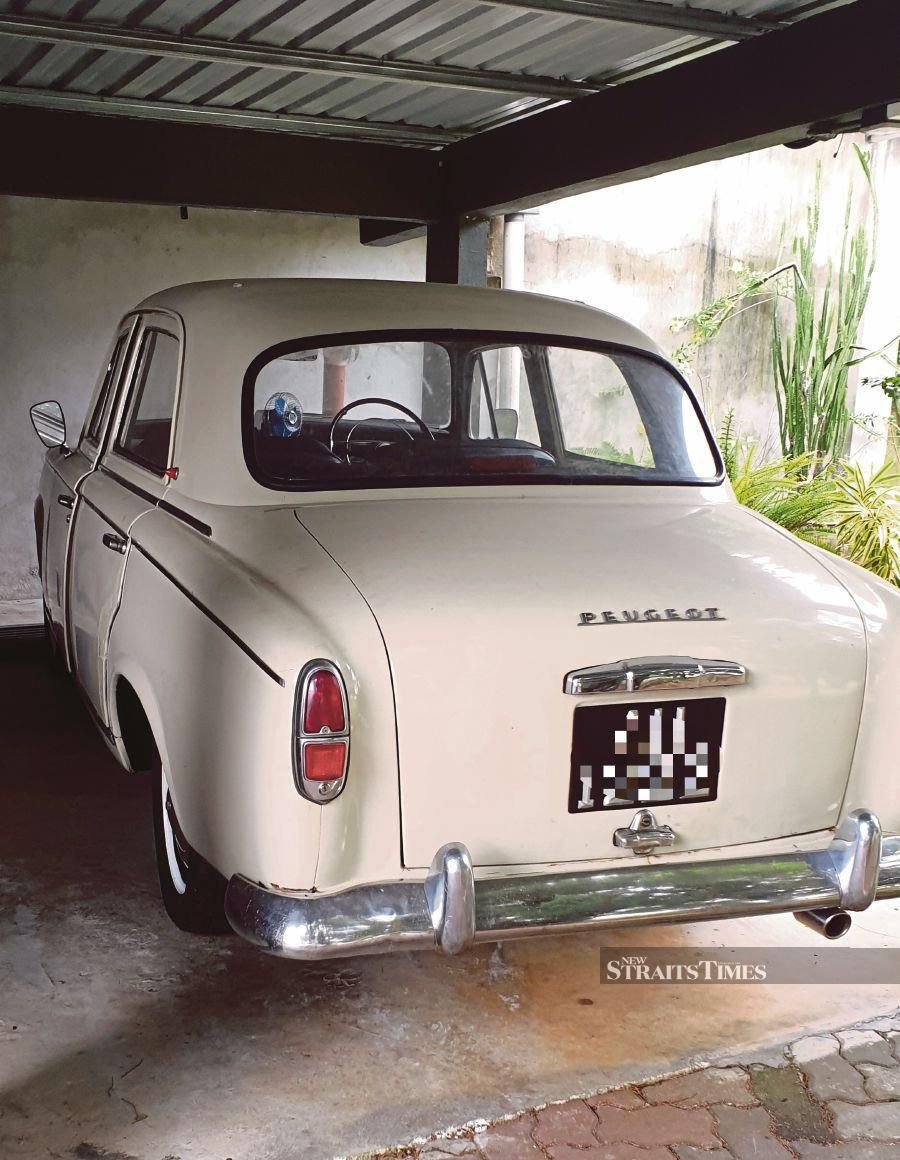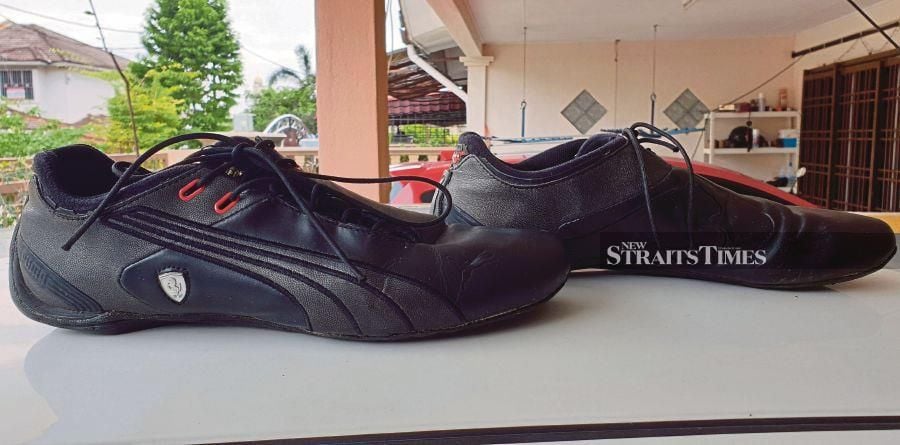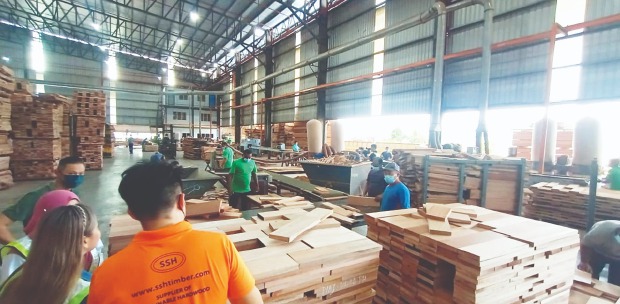So many things are new today, old tomorrow and forgotten soon after. That is the common thread running through our lives, in relationships and in commerce.
Of the former tale — bonds between woman and man — nothing will be said now. By the latter, I mean the goods that we buy during our sojourn on earth.
We keep buying. Because 'having' defines and sustains us. It feeds our heart, it sets us apart. This we are persuaded to be true.
Okay, we have made buying things integral to our brief existence. More than 200 years of the industrial revolution and now, the Fourth Industrial Revolution, have brought us here.
But why the fixation on new? Why cannot secondhand or preloved goods or repairing be the default? Would not loving the 'old' expand the circular economy, which every environmentalist and economist worth her salt is advocating?

Perhaps there are three big reasons why 'new' may almost always have the upper hand.
BECAUSE NEW IS BETTER
It's fresh off the assembly line, in a manner of speaking. Spirited like youth. Smelling like a rose. Strong like a lion.
I exaggerate. But you understand what I am conveying. We have been conditioned all our lives to believe in 'new'.
The Carousell Recommerce Index 2021 Report provides some insights into this. Carousell users in eight markets — Hong Kong, Indonesia, Malaysia, Myanmar, the Philippines, Singapore, Taiwan and Vietnam — were surveyed.
About 28 per cent had never bought secondhand goods before. The reason? Sixty-eight per cent of them cited quality concerns.

That 72 per cent of the users have made secondhand purchases before is great, but the survey found that 30 per cent "only buy secondhand where possible". The conservationist in me is hoping for a larger number, but the pragmatist is quite encouraged.
A secondhand furniture seller in Kajang tells me quality is a real hurdle. But buyers have to be realistic, too. Teh Yi Ping of the Abumama outlet says he is forthright with them.
"The price corresponds with the quality. If it's very low, it goes without saying the quality is not as great as that of a new product. But there's still some durability in the old product. That is for sure."

But how else can consumers ensure that there's more than a few strands of quality in a product? Carousell's country head (Malaysia), Tang Siew Wai, tells me of a few measures the classi-fieds marketplace has developed.
"We have Carousell Protection, an in-app payments solution which provides an assurance to users by holding the payment until a transaction is verified as successful by both buyer and seller."
Then there are initiatives such as the Mudah Vehicle Inspection & Protection in Malaysia, which provides warranty and verification for secondhand vehicles, and a Carousell Certified Mobiles pilot programme in Singapore, which offers a 12-month warranty to ensure mobile phones are in full working condition.
But the war on scammers, who hurt confidence in quality and credibility, is obviously a tough one.
News reports in recent days from neighbouring Singapore can testify to that.
BECAUSE WE HAVE THE MONEY (and 'new' is cheap)
The clouds of production are assembling like never before, and the rains they discharge flood our space with things so cheap it's hard to run away from the 'new' temptation.
This is true even though the pandemic may have crushed some wallets, and sent inflation on a journey into the stratosphere.
In essence the argument is this. "It's my money. I earned it. I'll do with it as I please." Those who are moneyed and not parsimonious may say this.
Those who are not so endowed will say this too, thanks to easy-payment schemes.
And why should consumers ask the reason for the low prices of the new things they buy? With worries of their own, why should they be concerned about the fact that the workers who make the goods are paid so little?
BECAUSE TO REPAIR IS HARD/NOT WORTH IT
A repairer of shoes tells me more people are warming to restoring the old. And cooling their passion for things new.
But there are obstacles to expanding the enterprise. These include getting skilled labour and funds. Also, society tends to think this business does not offer a good future, says Azmi Hadnan of Dr Shoes.
And if there's one thing you would notice, it's the fact that there are not many of such shops around. At least, not in the neighbourhood, where they should be. Maybe high rentals stunt growth. Cannot the authorities think of a way to fertilise the sector?

The Carousell report points to another challenge. It says both the fashion and electronic industries make products to "have shorter lifespans to perpetuate consumerism and the buy-throw mindset. Electronic companies create planned obsolescence and fashion giants participate in waste couture". Repair and reuse are not on the menu.
And finally, some would say it's more practical to buy new than to repair or get stuff secondhand. This we would hear often enough when it comes to cars. Better to borrow RM80,000 to get a new set of wheels than spend RM10,000 on restoring that jalopy in the porch or RM40,000 on a used car.
By Odin's beard! Does it make sense to get into debt like that?
Yes, there are many reasons why buying new will probably continue to dominate.
But maybe there's only one reason why you and I have to re-examine our choices. We talk endlessly about living sustainably, starting tomorrow. This is for the sake of those yet to come, we say.
It's time we acted today, if we really mean what we say. Let not our words be new today, old tomorrow and forgotten soon after, just like the many things in our lives.
i. Click here to read about the billion-ringgit potential of preloved clothes
ii. Click here to read about a man who heals shoes and is a fan of Jimmy Choo
iii. Click here to read about a 25-year-old entrepreneur who believes in secondhand furniture
The writer is NST production editor
The views expressed in this article are the author's own and do not necessarily reflect those of the New Straits Times






